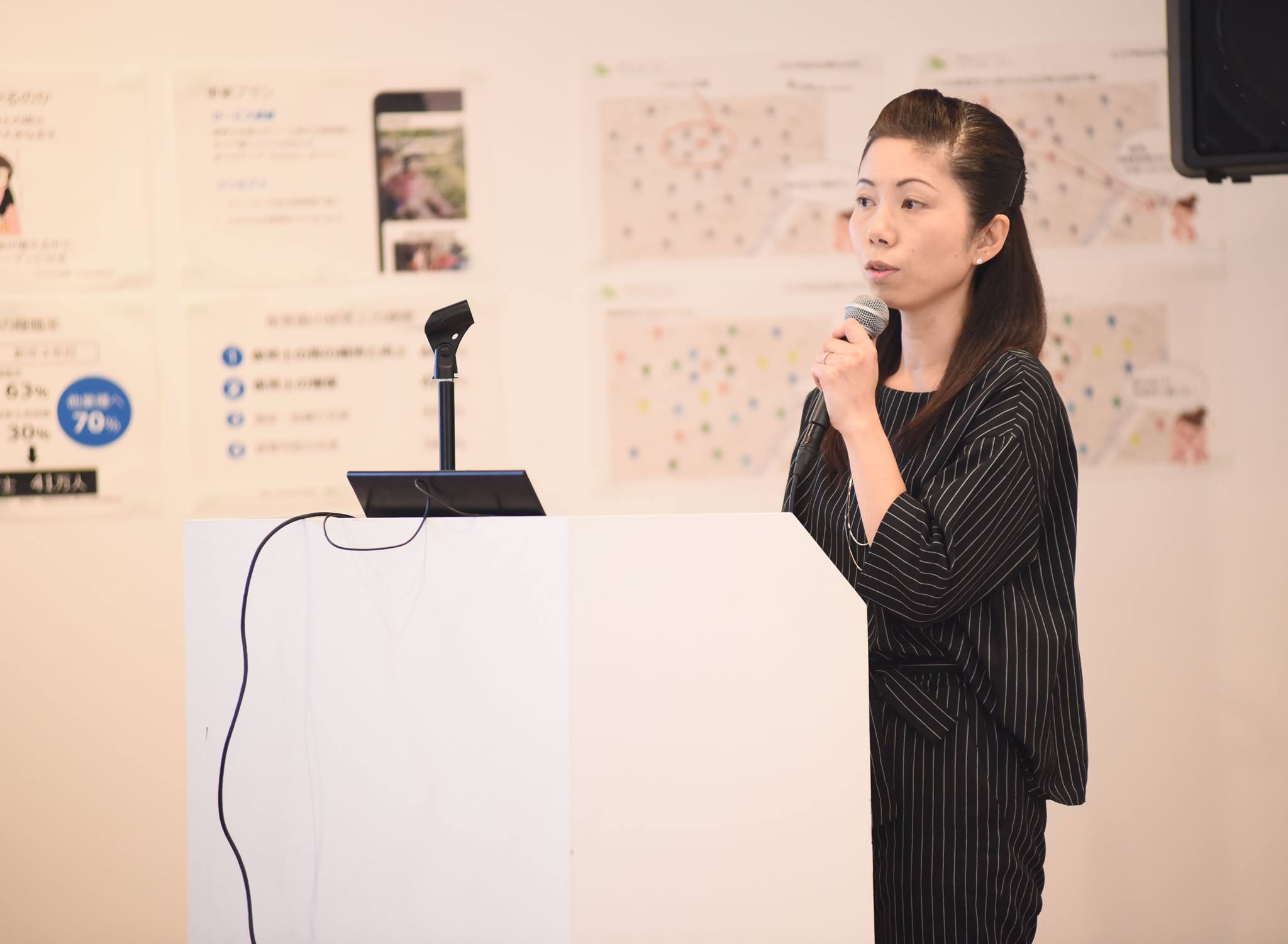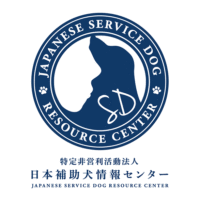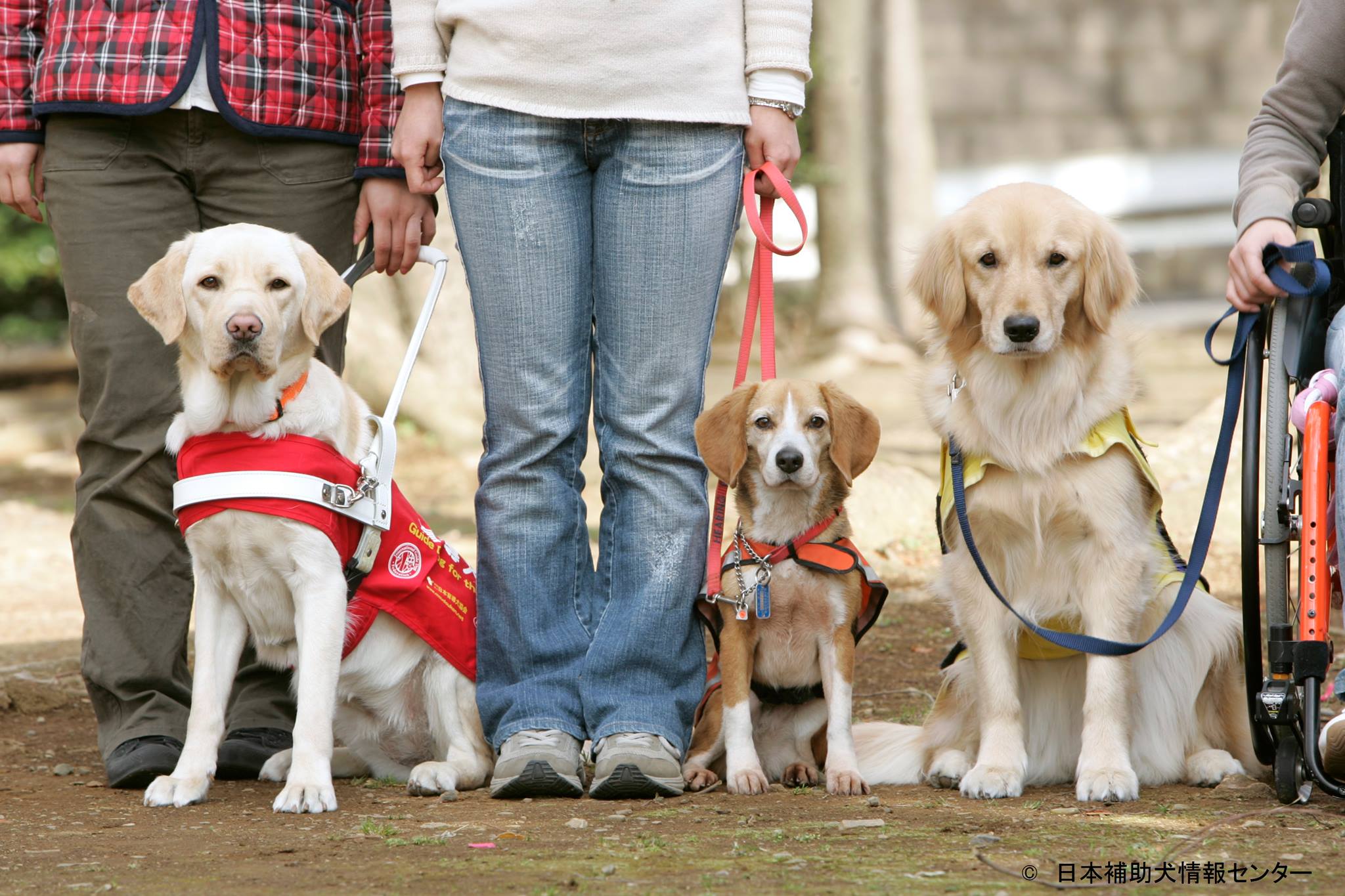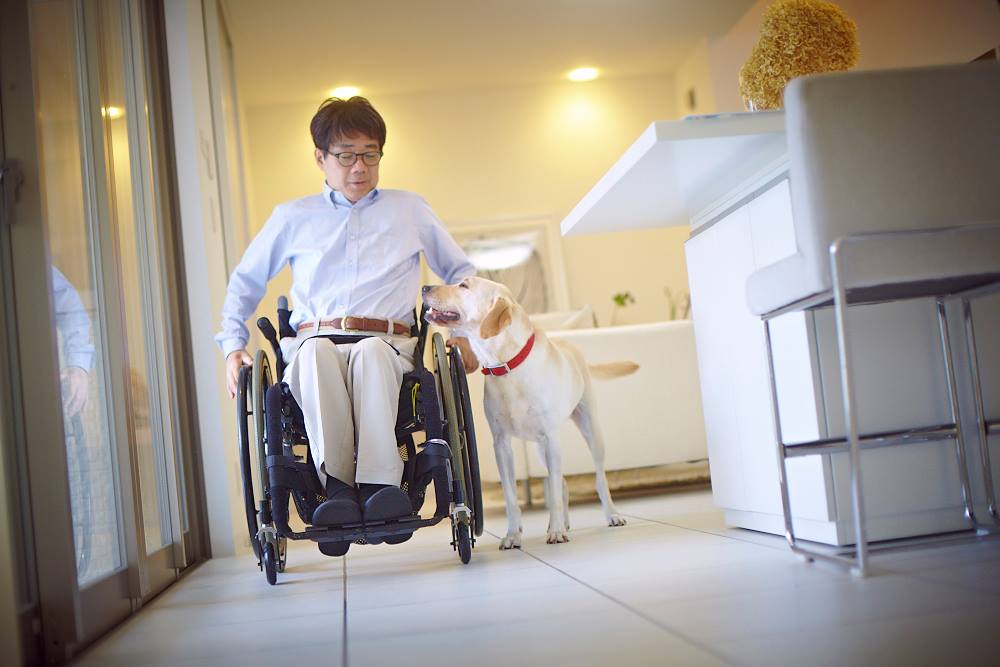“[A 49-year-old woman] living in Umi, Fukuoka is unable to see through her right eye, and, although her left eye has a visual acuity rating of 0.3, there are deficits in its field of vision. One or two years ago, when she was carrying a white cane, looking at her smartphone with magnified text inside of a subway car, the conversation of young people sitting across from her became audible. ‘Can’t she see?’ ‘No way.'” (Source: The Asahi Shimbun, November 22nd, 2016)
In fact, of the approximately 310,000 people [1] in the country who suffer from visual impairments, it is said that ten percent [2] are completely blind. That means that it is not necessarily true that someone who walks with a white walking stick is completely blind.
Ms. Tomoko Hashizume, the Secretary General of the nonprofit Japan Service Dog Resource Center, says of this event, “Surely it must be because people are ‘not properly aware,’ I think. I wonder if this represents a microcosm of society.”
It has been 15 years since Ms. Hashizume began working with service dogs. With regard to service dogs (e.g., seeing eye dogs, guide dogs, and hearing assistance dogs), she says, “They have played a role in reducing anxiety and the incidence of unfortunate events caused by lack of proper awareness.”
1. Things That Happen Due to “Lack of Proper Awareness”: Denial of Access for Service Dogs Accompanying Handlers
In May 2002, the Act on Assistance Dogs for Physically Disabled Persons (hereinafter referred to as the Assistance Dogs Act) was established. It was decided that public facilities and institutions used by a large number of people could not reject service dogs accompanying people with disabilities. However, as of 2015, the percentage of people with service dogs who have had their service dog rejected before has risen up to 66.0% [3].
Under such circumstances, Ms. Hashizume has made handbooks, YouTube videos, etc., for the sake of correctly informing people about information related to service dogs. Also, when she is consulted by service dog handlers about incidences of their service dogs being denied access, she, to whatever extent possible, visits the business people in question, or she makes phone calls and goes over advice from the standpoint of a third party.
“In practice, meeting and talking with people is very important. When you actually go to meet people in person, a relationship of mutual trust forms, so I make an effort to get out to various places,” Ms. Hashizume says.
A service dog handler living in Kantō describes such activities of Ms. Hashizume in this way:
“If someone is in the position of a service dog handler, then, no matter what, they can only see matters from a one-sided perspective. If I did not have Ms. Hashizume around to serve as a cushion, I would always bump into problems. Ms. Hashizume says, ‘The store’s standpoint is like this, the service dog handler’s standpoint is like this,’ and, because she handles the exchange of information for us, she can effectively explain things away. Her existence is a real treasure.”
2. Anxiety That Occurs Due to “Lack of Proper Awareness”: Service Dog Handlers from Abroad
The Japan Service Dog Resource Center is saying that, in recent years, inquiries from foreign service dog handlers have been increasing. Some are people who can travel to Japan, people who are considering immigration, and also, people who have already started living here on an American military base, etc.; the patterns of consultation are varied.
Facing the rising number of service dog handlers from abroad, there is a new problem. It is the matter of handling guide dogs to which the Assistance Dogs Act of Japan does not apply. Unlike the common rules around the world for seeing eye dogs and hearing assistance dogs, there are various different definitions and rules all over the world for guide dogs. In Japan, guide dogs are limited to the support of people with disabilities of the hands or feet. In contrast, overseas, guide dogs that handle things like emotional support, etc., also exist.
What turns out to be the case is that guide dog handlers who do not qualify under Japanese law cannot do things like make use of public services together with their dogs, etc. For these sorts of guide dog handlers, in addition to communicating the laws of Japan, Ms. Hashizume offers information on things like the use of rental cars and methods for finding establishments where pets are allowed.
At this sort of point, if I essentially tell people that they will understand if they search (for information), that is enough, and I can get reports saying ‘I was able to travel’ or ‘I was able to stay,'” Ms. Hashizume says.
We Want to Become a Hub That Connects Service Dog Handlers to Places
The Japan Service Dog Resource Center is welcoming new members starting from April, and they have the small organizational capability of two executive offices. In there, Ms. Hashizume flies around Japan, trying to increase the number of people who are “properly aware,” even if she has to do it alone.

“I have learned so much from many service dog handlers. Somehow, I want to transmit the voices of those service dog handlers, and that is all. Connecting service dog handlers with various different places means we maintain an existence similar to that of a hub, so I think I want to connect people of various situations.”
It has been 15 years since the Assistance Dogs Act was made into law. In the current state, we are afraid to say that there are figures showing that 64% of people do not know about the Assistance Dogs Act [4]. For the sake of widening and growing the network of people who are “properly aware,” the Japan Service Dog Resource Center needs the help of each and every citizen.
[1] The Ministry of Health, Labor and Welfare. Department of Health and Welfare for Persons with Disabilities Policy Planning Division. (2008) “Heisei 18 Survey Results on Handicapped Children and People”, http://www.mhlw.go.jp/toukei/saikin/hw/shintai/06/dl/01.pdf
[2] Masahiko Oka. (2013) “Research and Development of Vocal Information Acquisition System (112302006)” (ICT Innovation Forum 2013 Announcement Materials), http://www.soumu.go.jp/main_content/000256450.pdf
[3] Nonprofit organization Japan Service Dog Resource Center (2016) “Understanding the True State of Acceptance of Service Dogs and an Investigation into the Causes of Obstruction (Service Dog Handler Questionnaire Survey)”, http://www.jsdrc.jp/doc-manual/2016-hojoken-ukeire-chosa-user-01b.pdf
[4] Kumiko Matsunaka. Naoko Koda. (2012) “Knowledge of Ordinary Adults About the Act on Assistance Dogs for Physically Disabled Persons and the Acceptance of Service Dogs – About the Awareness of Coexistence After the Amendment of the Assistance Dog Act. Japanese Psychological Association. Proceedings of the 76th Annual Meeting., http://www.psych.or.jp/meeting/proceedings/76/contents/pdf/1PMB03.pdf


 GARDEN
GARDEN 

